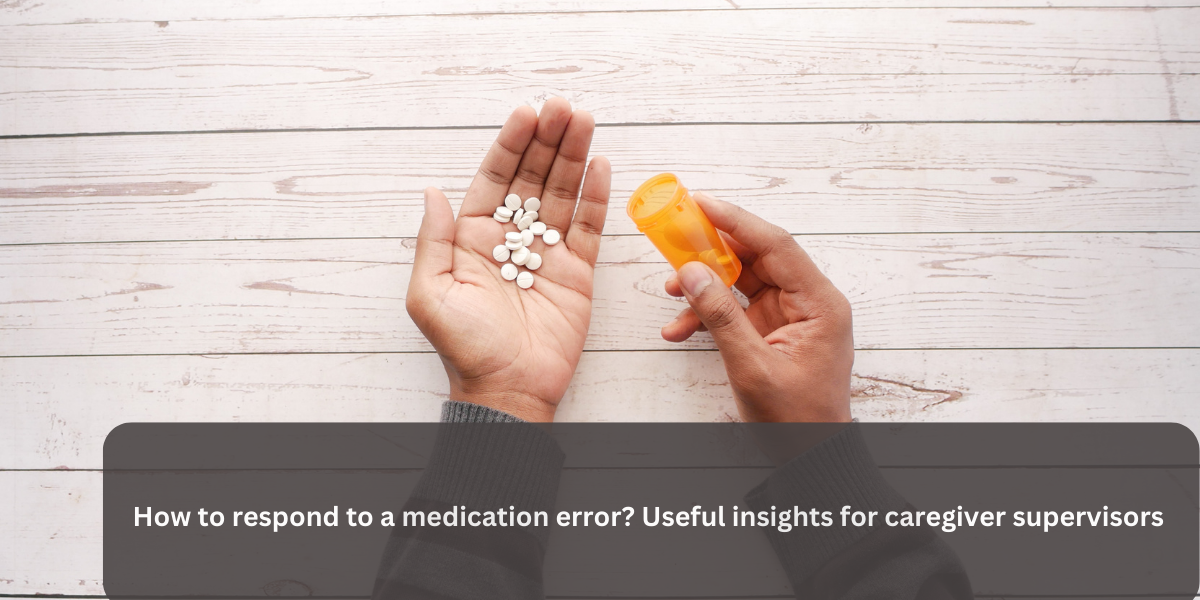A medication error is a preventable event that can cause patient harm. Medication errors can occur at any stage of the medication-use process, from prescribing to dispensing to administration. Such errors can have serious consequences ranging from minor side effects to near-fatal health problems.
Common types of medication errors include:
Some of the common types of medication errors:
- Giving the wrong dose
- Giving medications that are not prescribed
- Administering medication through the wrong route
While it is essential to take all the required steps to ensure that there are no medication errors, medication errors do occur. As a caregiver supervisor, it is your duty to ensure that medication errors are investigated properly so that similar errors do not occur again and you can ensure better care for your residents:
Here are some insights on how to respond to a medication error:
1. Know the extent of the problem:
If you suspect that a resident has been administered medication incorrectly, your first priority should be to contact a doctor. However, it is also important to gather all the relevant information before making the call. This way, you will be able to give the doctor a clear picture of the situation and help him/her make an informed decision for the resident.
2. Identify what led to the medication errors:
As a caregiver supervisor, it is important to be proactive in discussing medication errors with your caregiving staff. By doing so, you can better understand the root cause of the error and provide answers to any questions the residents or the residents’ families may have. This will also demonstrate to patients and their families that your care home’s investigation has been thorough.
3. Report it to authorities concerned:
If a medication error has occurred and the resident has come to any harm as a result, it is important to consider whether the threshold for reporting the incident has been met. In general, an incident should be reported if it has resulted in serious injury or prolonged hospitalisation.
4. Investigate further and review systems:
In the wake of a significant error, it is important to take steps to prevent its recurrence. One way to do this is to carry out a formal root cause analysis. This process can help to identify underlying problems that may have contributed to the incident. Once these problems have been identified, corrective action can be taken to mitigate the risk of a repeat occurrence. In addition to conducting a root cause analysis, it is also important to inform residents of the steps that are being taken to prevent future incidents. This transparency will reassure residents that their healthis a priority for your care home.
How can eMAR help your care home reduce medication errors?
Many care homes in the UK are using the top EMR system to ensure that digital medical records, including medical and treatment history, are maintained properly and updated regularly. Also, many are using eMAR to follow the best medication management practices at their care homes. Using eMAR not only eliminates hassles associated with paperwork but it has many features that help in reducing medication errors. eMAR sends alerts to care home staff when drugs are due — this means no doses are missed. It also allows caregiving staff to take notes and make monthly reports, making their daily work easy. This can streamline medication administration processes and help in reducing medication errors. To know eMAR can help you care home, book a demo today.







